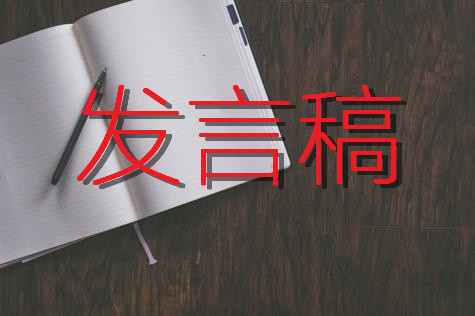Failed_Failed,Localization
时间:2019-04-16 03:34:24 来源:雅意学习网 本文已影响 人 
While the sagging economy in the United States has sent customers flocking to thrift shops, boosting sales for the not-for-profit organizations that operate these retail establishments, their counterparts in China are still struggling to establish themselves.
Compared with Boston-based Morgan Memorial Goodwill Industries, which has a history of 110 years, the thrift shop is a novel concept in China. Most cities did not have one until a national campaign of establishing such shops in large and mediumsized cities was funded by the government in 2004.
Low-income families entitled to living allowances receive gift cards that allow them to purchase goods at thrift shops. While the initial merchandise available at these shops were purchased with government funds, the government expected that a steady flow of donations from individuals and businesses would sustain the survival of these shops in the long run.
However, many of these shops around China are either closed or without customers.
Jinan, capital of east China’s Shandong Province, had its first thrift shop open in January 2004. There were as many as 36 stores at the peak of the city’s frenzy of establishing more facilities. Now 21 stores have witnessed increased business while most of the remainder are struggling for survival.
According to locally published Dazhong Daily, the remaining thrift shops in Jinan have mostly followed three development models. A small number run successfully as social enterprises and turn in profits. Besides paying the rent and bills, part of their profits are used as subsidies for extremely poor families. Others only sell basic daily necessities to low-income families. Still others have become outlets of large supermarkets, where low-income families can purchase items with government-distributed shopping cards. The government pays the customers’ bills by transferring the money directly to the operators.
Left to fail
Jinan’s earliest thrift shop, which has a 400-square-meter shopping area, is operated by the Jinan Charity Federation. Now it has empty aisles on any given day, even with neatly arranged racks, a wide range of goods and dozens of promotion banners everywhere. In contrast, a supermarket only 200 meters away is buzzing with customers combing through racks to find ideal goods.
Each variety of merchandise in this thrift shop has three price tags: The highest price is a charitable price for ordinary people who can afford to pay more; the middle price is the market price; the lowest price is for shoppers entitled to government living allowances. Most proceeds go directly into charity funds to support low-income groups.
“Many residents think that a thrift shop is only for the poor and don’t sell to ordinary consumers. If we have more customers, we could make ends meet and even turn in a profit,”Zhang Rui, Manager of the shop, told China National Radio. Zhang said that the extremely low customer flow had hampered its designed function as a new form of donation platform.
According to Zhang, the Jinan Charity Federation has been trying to transform the current operational model by partnering with a large supermarket chain in the city and finding more sponsorship companies, but these efforts have made little progress.
The thrift shop has two managers and four other staff, with the Jinan Charity Foundation paying their salaries. It has received donations of 1 million items since its founding, worth 10 million yuan ($1.57 million). However, total sales since its founding were only a little more than 170,000 yuan ($26,763).
Managers of other thrift shops in Jinan have other explanations for their failure to lure people in. “When a regular supermarket sells all kinds of groceries like meat, eggs and milk, our store only sells those meeting basic daily needs for low-income families,”said Hou Dengmei, Manager of Shunyu Road Thrift Shop.
Dianliu Thrift Shop, one of the earliest establishments of its kind in Jinan, has transformed itself into a place to distribute government aid to low-income families after experiencing operational difficulty in selling secondhand goods despite low prices.
“Many people came to us to donate clothing right after we opened. Although donated clothes were made of high-quality fabrics, had been rigorously sterilized and evaluated by professionals, nobody bought them even though the prices were low. Eventually we sold most of them for almost nothing to migrant workers,” said an anonymous manager of the shop. Now the shop limits its purchases strictly within the budget of government funding.
Jinan-based Qilu Evening News also reported that the earliest thrift shop in Dezhou, another city in Shandong, stopped accepting donated clothes since the beginning of this year. The manager was quoted as saying “the sorting and sterilization process is rather bothersome.”
Dong Guangkun, who works for the Jinan Charity Federation, said that donations from individuals and businesses flooded into thrift shops shortly after they were founded, yet the enthusiasm quickly ebbed away. He said that as donations faded, some shops were forced to cut back on the variety of goods and the scope of shoppers enjoying lower-thanmarket prices.
According to Dazhong Daily, while thrift shops in Jinan have been heavily relying on corporate donors, the city’s government fails to offer businesses donating goods a tax credit, which is enjoyed by businesses donating cash to charity organizations. Actually, there is no regulation on how to evaluate goods donated by companies in China.省略 in June, 63 percent of the 4,610 respondents were not aware of the concept of thrift shop, 28 percent knew there were thrift shops but had never been to one and 7 percent shopped at thrift shops but were unhappy with the experience.
Thrift shops in Jinan are not alone in experiencing crippling financial difficulties. Nationwide, a thrift shop in Nanchang, capital of central Jiangxi Province, closed down after opening for business for merely 11 days and all of the 31 thrift shops in Luohe, central Henan Province, have vanished.
Possible solutions
“It is not that China doesn’t need thrift shops. But they are not well operated due to the lack of experience,” said Yu Xianyang, a sociology professor at Renmin University of China.
Yu, who has done field research on several thrift shops in China, said that thrift shops should have clarified their target customers to include all non-rich people while in reality the low price tags only apply to those entitled to government living allowances.
He said that most thrift shops in China are not strategically located on busy streets, instead they are hidden in quiet corners of residential communities, which significantly affects their customer flow. “After pooling money into establishing these facilities, the government failed to rigorously monitor their operation. These shops had no accounting transparency and nobody would be held accountable even when these stores went bankrupt,” Yu said.
Most thrift shops in China have neither qualified managers nor on-job training programs for employees. According to China National Radio, staff members of these shops are either civil servants from civil affairs departments or retirees or laid-off workers who have difficulty in finding employment elsewhere. They have zero experience in advertising and marketing and fail to make the most use of thrift shops’ low-price competitive edge.
According to Dazhong Daily, the Jinan Civil Affairs Bureau is mulling to help thrift shops in the city form a supply chain so that outlets that are short of one commodity can seek help from other stores. Officials also suggest launching a publicity campaign to let more people know about the existence of thrift shops.
推荐访问:Failed Localization









